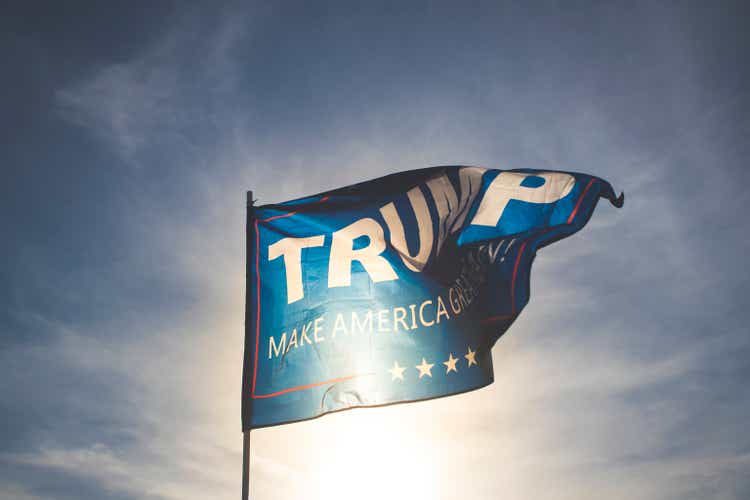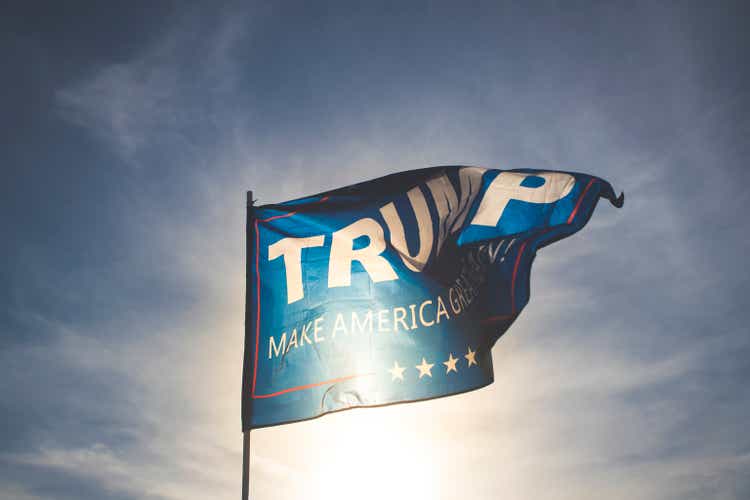
LPETTET
Andrew Garthwaite, chief Global Equity strategist at UBS, listed in a note what he sees as potential winners in the wake of Former President Trump’s second presidential win.
Here is his list:
- U.S. financials (XLF) – “Higher bond yield helps life companies, higher rates help banks (KBE), (KBWB), (KRE), de-regulation helps M&A, potentially lighter capital requirements.”
- Global and U.S. privately-owned oil and gas companies. “Trump extends the asset life of U.S. IOC (international oil companies); ESG (or environmental, social, and governance); Trump favors increasing the SPR (Strategic Petroleum Reserve) – the world’s largest supply of emergency crude oil; Trump favors more drillings.”
- Software (XSW) vs. semiconductors (PSI), (USD), (SMH), (SOXX) since it has little exposure to China, unlike semis, which could have harsher controls on their exports.
- General Motors (GM), Ford (F) vs. German auto names such as BMW (OTCPK:BMWYY), Mercedes-Benz (OTCPK:MBGAF), and Volkswagen (OTCPK:VWAGY). “Trump is likely to come out with policies favoring both ICE (internal combustion engine) and higher tariffs on foreign production.” German autos have a bigger exposure China than their European peers.
- Eastern European banks such as OTP Bank (OTCPK:OTPGF), and Komercni Banka (OTCPK:KMERF). “In the event of the resolution of the war in the Ukraine, there is a rebuild estimated at $0.4-1T.” In addition, in response to a potential 60% tariff on China, “Europe likely raises tariffs to stop dumping… [leading] to China redirecting FDI to countries with limited local content rules, (such as Hungary).”
- U.S. crypto exchanges, such as Gemini Group (OTCPK:GMNI), Coinbase Global (COIN), Binance Coin (BNB-USD), and Robinhood Markets (HOOD).
- Value (IVE) vs. growth (SPYG) in U.S. equities, and 45% of value is energy (XLE), real estate (XLRE), industrial (XLI) and financials (XLF), “which benefit from looser regulation (and maybe tariffs).”
- The Russell 2000 (IWM) relative to the S&P (SPY) – according to UBS analysts – benefiting from looser regulation, and potentially from lower corporate taxes, and a stronger dollar. “The problem is that weaker growth and higher rates under Trump are ordinarily more problematic for Russell 2000.”
